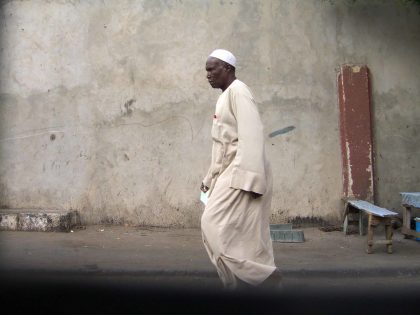
Uganda’s most controversial and disruptive politician
A new book revisits the career of Uganda’s first elected prime minister, Benedicto Kiwanuka, his followers, and political ideas.

A new book revisits the career of Uganda’s first elected prime minister, Benedicto Kiwanuka, his followers, and political ideas.

What if the social media conditions of 2021 existed in 1981? A group of New Zealand writers tweeted the damned 1981 Springbok rugby tour as if it was happening now.

53 years after it was first made in 1968, the Ghanaian filmmaker King Ampaw’s short film ‘Black Is Black’ celebrates its inconspicuous premiere.

Gurnah’s Nobel Prize invites us to ponder Germany’s colonial past between the Scramble for Africa and the First World War in what is now Tanzania, Burundi, and Rwanda.

Islamic scholarship in Africa and the meaning and end of decolonization in the work of religious studies scholar, Ousmane Kane.

On this episode of AIAC Talk, Will Shoki and Sean Jacobs discuss the history and politics of the African Cup of Nations football tournament.

Two books, by art historian Bénédicte Savoy and journalist Barnaby Phillips respectively, detail how we got to this point in the restitution of African heritage.

The film, 'We are Zama Zama,' about illegal miners in South Africa, is a social commentary on the failures of post-colonial liberal democracies in Southern Africa.

The impressive debut album of the Malcolm Jiyane Tree-O marks the arrival of a unique genius in post post-apartheid South African jazz.

Africa Is a Country Radio is back with a new season. Each show will be inspired by the work of a different African author. First up, we explore the Ethiopian Tizita with Mukoma Wa Ngugi.

How the film, 'I am Samuel' about a gay Kenyan couple was banned by the Kenya Film Classification Board.

This week on AIAC Talk: 2021 has been declared a great year for African literature, but what does that actually mean?

In the last video for our Nairobi edition of Capitalism in My City, we meet the Organic Intellectuals Network.

La longue histoire du classisme et de l'homophobie dans les espaces publics et médiatiques au Cameroun.

The long history of classism and homophobia in public and media spaces in Cameroon.

The mass atrocities of the 1899 French invasion of what is Niger today are finally being treated with the gravity and consequence they deserve in Western popular histories.

Street names are political weapons. They produce memories, attachment and intimacy—all while often sneakily distorting history.

In November 2017, Robert Mugabe was toppled in a coup. Amid this epochal change, life—and cricket—simply went on for Zimbabweans, who are still in search of a better future.

The documentary, Rumba Kings, offers a commendable and tireless argument for both an intangible cultural heritage case and a centering of the Congolese way.

Colonialism should take a lot of blame for anti-queer attitudes in Africa. But missing is a frank engagement with how African indigenous cultures also fuel anti-queer attitudes.